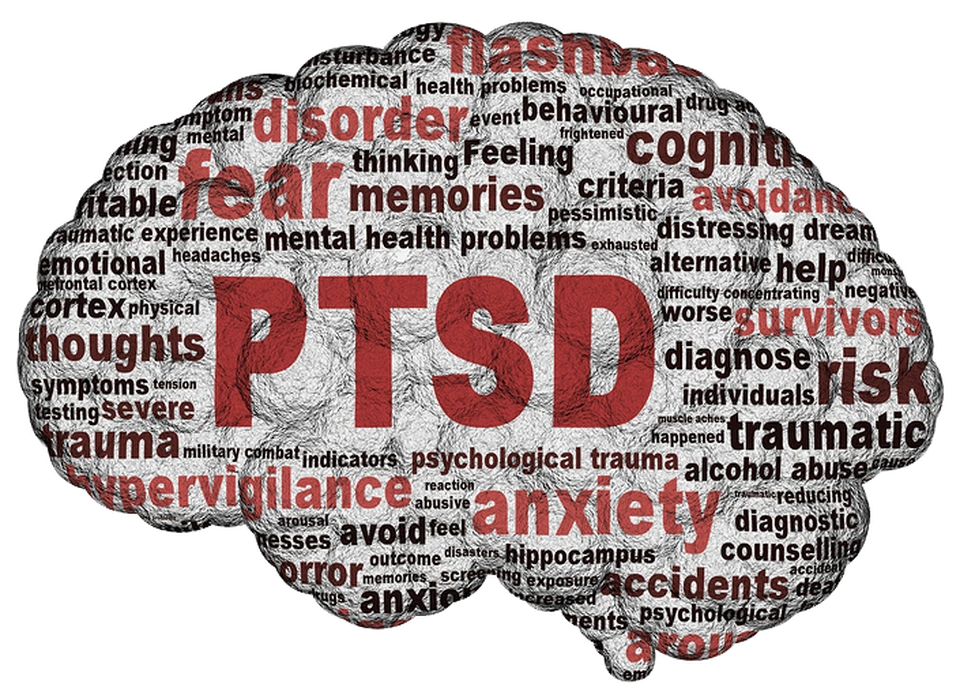Breaking the Stigma: How Health & Wellness Coaching Supports PTSD Recovery
A Holistic Approach for Veterans & Civilians Alike
June is PTSD Awareness Month, a time dedicated to understanding the complex impact of trauma. While discussions often focus on veterans, PTSD affects a diverse range of individuals—from survivors of abuse, accidents, natural disasters, and other life-altering experiences. Recovery isn’t one-size-fits-all, and that’s where Health & Wellness Coaching, guided by NBHWC standards, plays a transformative role.
The Health & Wellness Coach: A Catalyst for Healing
A Health & Wellness Coach doesn’t diagnose PTSD or replace clinical therapy; instead, they empower individuals by facilitating behavioral change and guiding clients toward self-discovery, resilience, and long-term well-being.
Keyways Coaching Supports PTSD Recovery
Facilitating Self-Discovery:
Clients uncover their strengths, values, and motivations, helping them regain a sense of purpose and identity post-trauma.
Co-Creating Actionable Strategies:
Rather than offering prescriptive solutions, coaches collaborate with clients to design personalized wellness plans that fit their lifestyle and challenges.
Behavioral Change & Stress Management:
Through techniques like motivational interviewing, habit formation, and positive psychology, coaches support healthy coping mechanisms, helping clients navigate triggers.
Empowerment & Accountability:
PTSD can leave individuals feeling isolated or stagnant; coaching provides consistent support, encouraging clients to take small, meaningful steps toward progress.
Integrating Wellness Beyond Therapy:
By focusing on nutrition, sleep hygiene, movement, and mindfulness, coaches help clients rebuild their well-being holistically, making recovery more sustainable.
Why This Matters for PTSD Survivors
- Veterans: Many struggle with transitioning to civilian life—coaching offers structure, helping them set personal goals beyond military service.
- Civilians: PTSD doesn’t always come with community support. Coaches provide an understanding, non-judgmental space to rebuild confidence.
- Mental Health Professionals: Coaches complement therapists and psychologists, reinforcing healthy behavioral patterns outside of clinical sessions.
NBHWC Guidelines: The Gold Standard for Coaching
The National Board for Health & Wellness Coaching (NBHWC) ensures that certified coaches adhere to rigorous ethical and professional standards, including:
✅ Evidence-based approaches, including behavioral change models and mindful coaching techniques.
✅ A trauma-sensitive framework, ensuring clients feel safe, respected, and empowered.
✅ The ability to work alongside mental health professionals, forming an integrated support network for PTSD recovery.
A Call to Action: PTSD Recovery Through Coaching
Recovery isn’t a linear journey, but no one has to walk it alone. Organizations, mental health advocates, and veterans’ programs should consider incorporating Health & Wellness Coaching into PTSD support initiatives.
If you or someone you know is looking for personalized, empowering wellness guidance, explore NBHWC-certified coaching as a valuable resource. Because healing isn’t just about overcoming trauma—it’s about reclaiming life with renewed strength.


If some one wishes expert view on the topic of blogging and site-building after
that i suggest him/her to pay a visit this weblog, Keep up the good job.
It’s actually a cool and useful piece of information. I’m happy that you just shared this useful info with us.
Please stay us informed like this. Thank you for sharing.
Your means of explaining all in this post is genuinely pleasant, all be able to without difficulty understand it, Thanks a lot.
I really like it when people come together and share ideas.
Great website, keep it up!
Wow that was strange. I just wrote an really long comment but after I clicked submit my comment didn’t show up.
Grrrr… well I’m not writing all that over again. Anyhow,
just wanted to say wonderful blog!
With havin so much written content do you ever run into any problems of
plagorism or copyright violation? My website has a lot of completely unique content I’ve either
created myself or outsourced but it seems a lot of it is popping it up all over
the internet without my authorization. Do you know any methods to help protect against
content from being ripped off? I’d definitely appreciate it.
There is no real way, unless you copywrite it, which costs money. You can enter a Digital Rights Management statement, which does give you some availability to challenge someone using your content without permission.
I could not resist commenting. Exceptionally well written!
Hey there are using WordPress for your blog platform?
I’m new to the blog world but I’m trying to get started and
set up my own. Do you need any coding knowledge to make your own blog?
Any help would be really appreciated!
No, you do not, using word press makes it simple
An intriguing discussion is definitely worth comment.
I do think that you ought to write more on this subject,
it might not be a taboo matter but usually folks don’t talk about these topics.
To the next! Cheers!!
I love your blog.. very nice colors & theme.
Did you create this website yourself or did you hire someone to do it for
you? Plz answer back as I’m looking to construct my own blog and would like to
find out where u got this from. many thanks
I manage this through a wordpress for non-profits
Hi there to all, how is everything, I think every
one is getting more from this web page, and your views are
nice in support of new viewers.
Hello it’s me, I am also visiting this web page daily, this web site is truly nice and the visitors are genuinely
sharing pleasant thoughts.
Great blog! Do you have any tips for aspiring writers? I’m hoping to start my own blog
soon but I’m a little lost on everything. Would you suggest starting with a free
platform like WordPress or go for a paid option? There are so many
options out there that I’m totally confused ..
Any ideas? Many thanks!
I would recommend looking into all platforms, find the top rated ones based on user-feedback and price point.